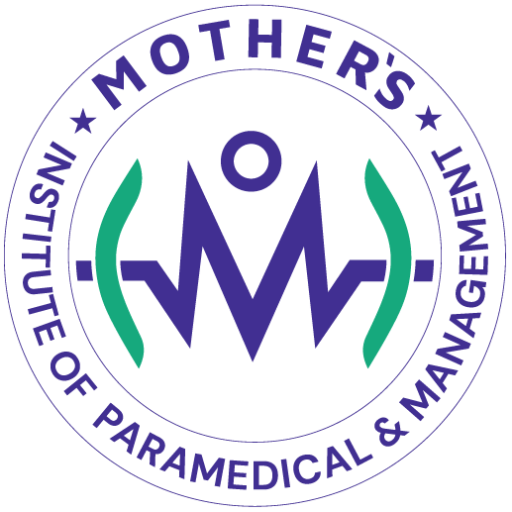The Diploma in Optometry program is designed to train individuals in the specialized field of optometry, equipping them with the knowledge, skills, and clinical experience necessary to provide primary eye care services. Optometrists play a vital role in assessing, diagnosing, and managing vision and eye health issues, prescribing corrective lenses, and detecting and referring ocular diseases. This diploma program prepares students for entry-level positions in optometry practices, eye clinics, hospitals, and vision care centers.
- Ocular Anatomy and Physiology: Students learn about the structure and function of the eye and visual system, including the cornea, lens, retina, optic nerve, and visual pathways. They study ocular anatomy, physiology, and pathology to understand the mechanisms of vision and common eye conditions.
- Visual Optics: This segment focuses on teaching students the principles of visual optics, including refraction, accommodation, and optical properties of the eye. Students learn about spectacle lenses, contact lenses, lens design, and optical aberrations affecting visual performance.
- Optometric Examination Techniques: Students learn to perform comprehensive eye examinations to assess visual acuity, refractive error, binocular vision, eye health, and visual function. They gain skills in conducting subjective and objective refraction, visual field testing, binocular vision assessments, and ophthalmic imaging.
- Contact Lens Fitting and Management: Students study the fitting, prescribing, and management of contact lenses for vision correction and therapeutic purposes. They learn about contact lens materials, designs, fitting techniques, care regimens, and complications associated with contact lens wear.
- Ocular Disease Detection and Management: Students learn to recognize and manage common ocular diseases and conditions, including refractive errors, glaucoma, cataracts, diabetic retinopathy, macular degeneration, and dry eye syndrome. They study diagnostic techniques, treatment modalities, and referral protocols for ocular diseases.
- Pediatric Optometry: Students learn about pediatric eye care, including visual development, common pediatric eye conditions, and pediatric vision assessment techniques. They gain skills in assessing and managing vision problems in infants, children, and adolescents.
- Geriatric Optometry: Students study the vision care needs of older adults, including age-related vision changes, presbyopia, cataracts, and age-related macular degeneration. They learn to address the visual and functional challenges faced by elderly patients and provide appropriate vision care solutions.
- Low Vision Rehabilitation: Students learn about low vision assessment and rehabilitation for individuals with visual impairment. They study low vision aids, magnification devices, optical and non-optical strategies for maximizing residual vision, and enhancing visual independence and quality of life.
- Practice Management and Ethics: Students learn about optometric practice management, including office procedures, patient communication, record keeping, billing, coding, and ethical considerations in optometric practice. They gain skills in managing optometric clinics, providing patient-centered care, and adhering to professional standards and regulations.
- Optometrist:
Working as primary eye care providers, performing comprehensive eye examinations, diagnosing vision and eye health conditions, prescribing corrective lenses, contact lenses, and medications, and providing vision therapy and low vision rehabilitation services. - Optometric Technician:
Assisting optometrists in performing pretesting procedures, gathering patient history, measuring visual acuity, intraocular pressure, and other diagnostic tests, and providing support in optometric clinics, vision centers, or eye care practices. - Contact Lens Specialist:
Specializing in fitting and managing contact lenses for vision correction, therapeutic purposes, and specialty contact lens applications, such as orthokeratology, scleral lenses, and keratoconus management. - Low Vision Specialist:
Providing low vision assessment, rehabilitation, and counseling services to individuals with visual impairment, prescribing low vision aids, adaptive devices, and assistive technology to maximize functional vision and independence. - Pediatric Optometrist:
Focusing on pediatric eye care, conducting vision screenings, diagnosing and managing vision problems in children, monitoring visual development, and providing early intervention and vision therapy services to optimize visual outcomes. - Geriatric Optometrist:
Specializing in geriatric eye care, conducting comprehensive eye examinations for older adults, managing age-related vision changes and ocular diseases, and providing personalized vision care solutions to enhance quality of life in older populations. - Vision Therapist:
Providing vision therapy services to individuals with binocular vision disorders, amblyopia, strabismus, and visual perceptual deficits, implementing customized treatment plans to improve visual function and enhance visual skills.
The Diploma in Optometry program prepares students for rewarding careers in optometry and vision care, providing them with the knowledge, skills, and clinical experience necessary to deliver comprehensive eye care services to individuals of all ages. By mastering the principles of optometric science, developing clinical proficiency, and gaining practical experience, graduates contribute to promoting visual health, preventing vision loss, and improving the quality of life for patients in diverse communities.
